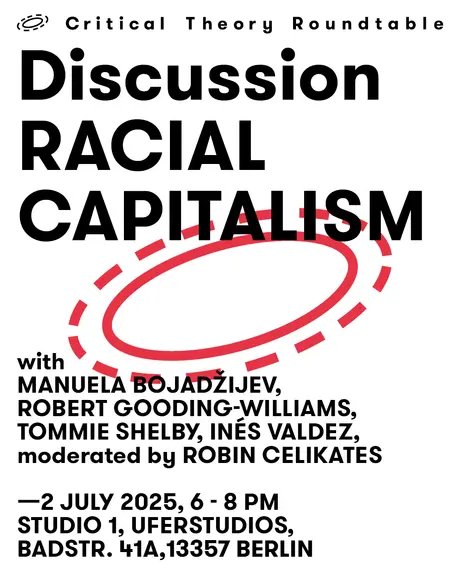
The term "racial capitalism" is increasingly used to emphasize that industrial capitalism was historically built on colonialism and slavery, and that capitalist accumulation continues to function sociologically through racial differentiation and hierarchization.
In recent years, "racial capitalism" has not only garnered sustained theoretical attention but has also become an important point of reference for radical social movements such as the Movement for Black Lives.
The reasons for this are easy to understand:
Race (just like gender) determines who has access to jobs, wages, housing, credit, cross-border mobility, and other social goods; and who is subject to austerity, police brutality, imprisonment, environmental hazards, and health risks is fundamentally racialized.
Even if one acknowledges the reality and actual centrality of these phenomena for an adequate understanding of capitalism, it remains controversial whether, and if so, how, the concept of racial capitalism can be systematically expounded beyond its often vague and insufficiently theoretically grounded usage.
In this summer school, they will explore some of the central philosophical and social-theoretical questions raised by the turn to "racist capitalism":
Is the connection between capitalism and racism historically contingent or necessary? If capitalism is necessarily racist, what makes it so? If race and gender are not accidental but constitutive of capitalism, how can the relationship between class, race, and gender be conceptualized in a way that also tracks their realignment in the current constellation?
If race, within the framework of racist capitalism, is not primarily an identity but a power structure, what implications does this have for our analysis of both capitalism and the movements that struggle against oppression and exploitation?
And if the universal proletariat can no longer serve as the subject of revolutionary emancipation, what horizon is available today for anti-capitalist struggles and transversal forms of solidarity to prevent emancipatory politics from fragmenting into a multiplicity of struggles that often pursue opposing goals?
The public panel discussion at this year's International Summer School for Critical Theory offers an opportunity to discuss approaches to economics in contemporary social theory.
120 minutes
(IN ENGLISH)
Additional information
We do apologize that the following information is currently only available in German.
Dates
July 2025
| Mo | Tu | We | Th | Fr | Sa | Su |
|---|---|---|---|---|---|---|
1
|
2
|
3
|
4
|
5
|
6
| |
7
|
8
|
9
|
10
|
11
|
12
|
13
|
14
|
15
|
16
|
17
|
18
|
19
|
20
|
21
|
22
|
23
|
24
|
25
|
26
|
27
|
28
|
29
|
30
|
31
|



